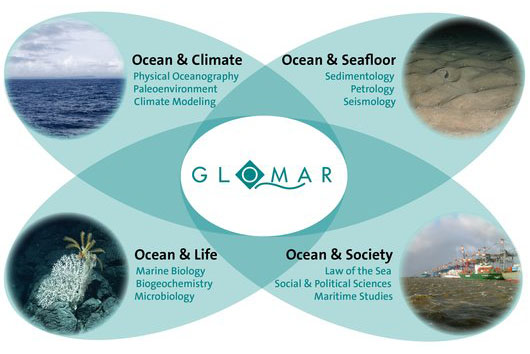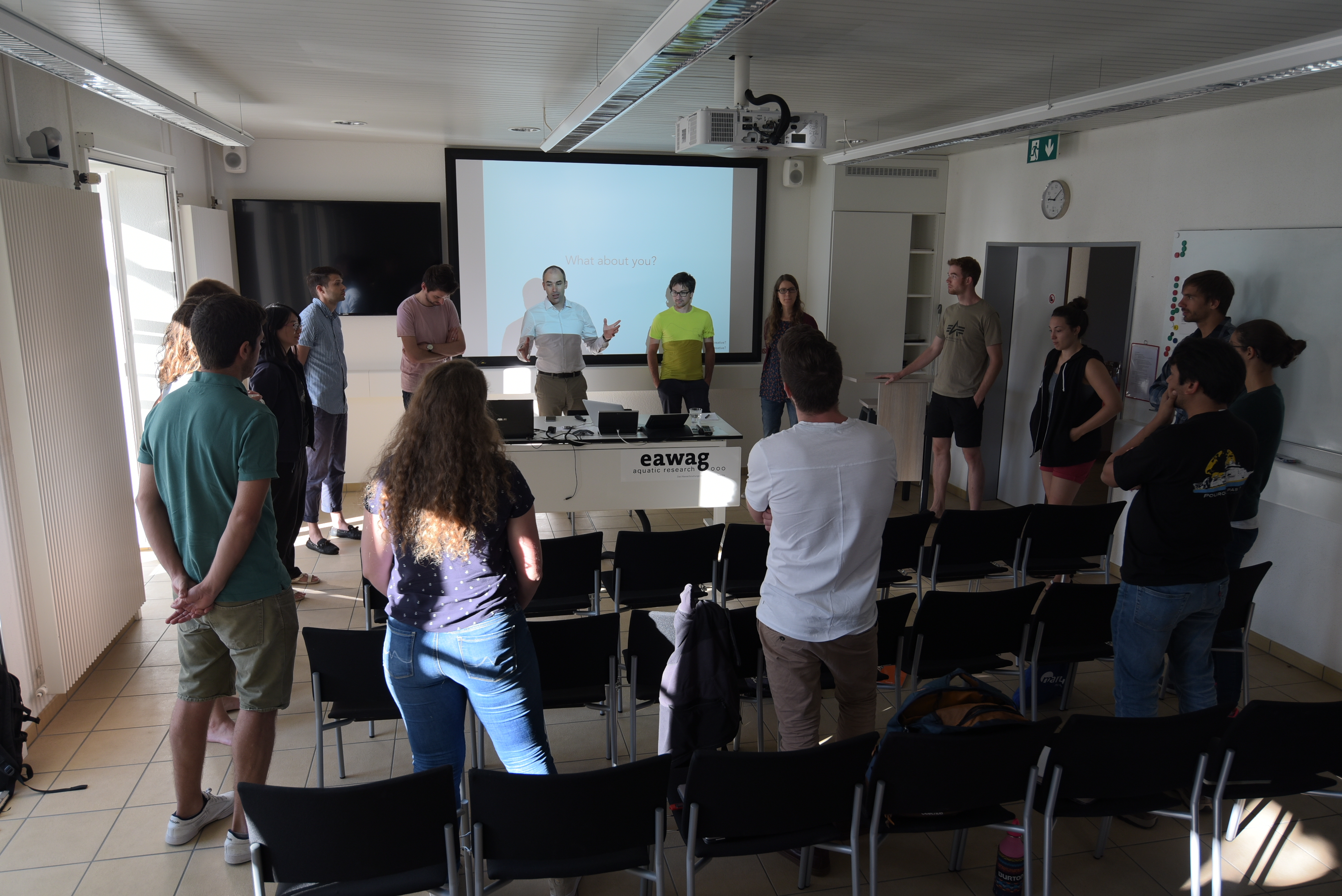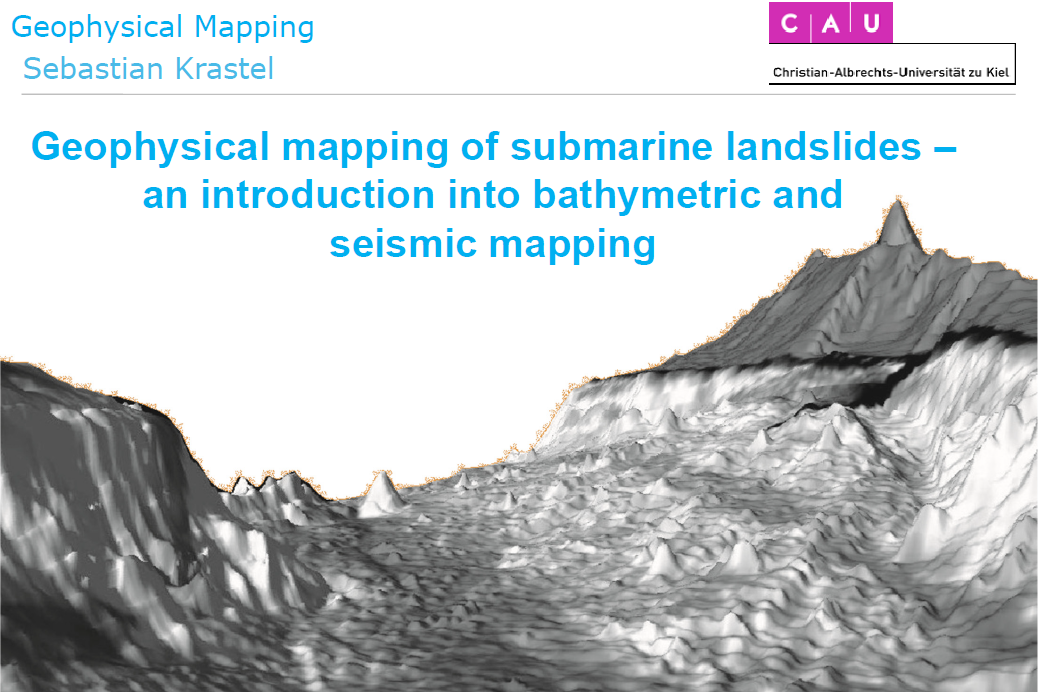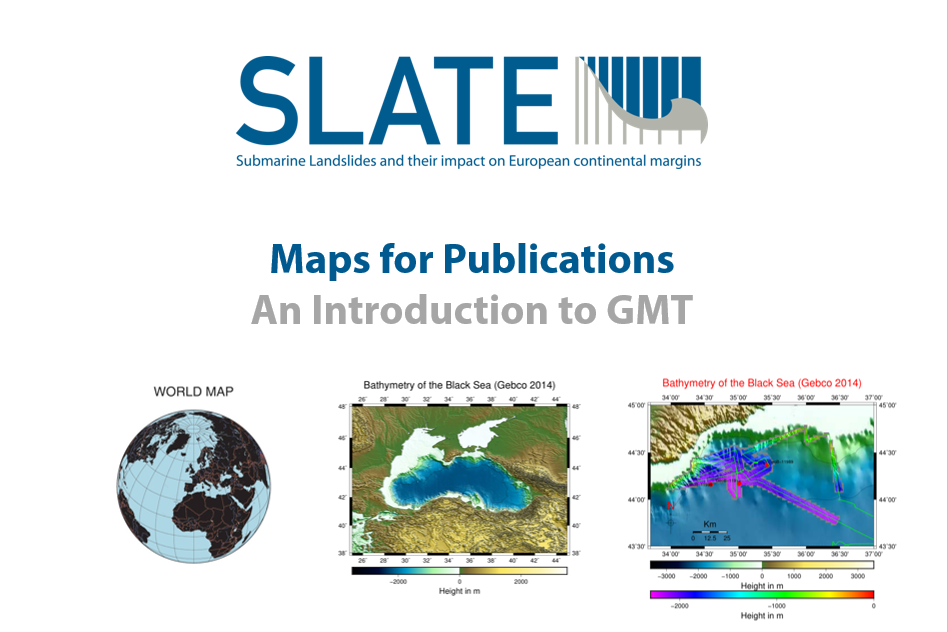Courses
SLATE offers a variety of courses that are integrated into the four Joint Annual Workshops. Expert Courses (EC) focus on specific techniques and methodologies used within SLATE and are designed according to following theme-focussed topics:
- Geophysical mapping of submarine landslides
- Coring techniques and core analysis
- Numerical modelling techniques
- Monitoring and long-term observatories
They are supplemented by Soft-Skill Courses (SC) that provide the ESRs with transferable and complementary skills for a more advanced career (e.g. scientific writing, media communication, funding/proposal preparation).
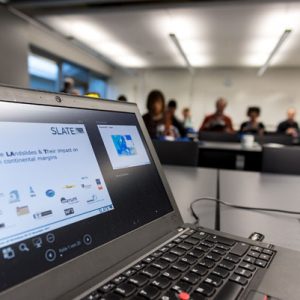
Course Archive
2018
Courses, ESR 11, ESR 7, ESR 9, News
Graduate schools can provide PhD students valuable support in a variety of ways. In this blog, Ting-Wei (ESR 7), Ricarda (ESR 9) and Monika (ESR 11) introduce GLOMAR, the international graduate school for marine sciences in Bremen. Read more about networking opportunities, seminars and offered courses!
expert courses
Courses, ESR 11, ESR 12, ESR 2, News
Being a scientist does not only mean doing hard science everyday – it also requires presenting it to the public. In this third post in the ‘Lake Lucerne Workshop’ series Jonny (ESR2), Monika (ESR11) and Will (ESR12) share their experience of the expert courses on science communication.
2017
Geophysical mapping of submarine landslides
Courses, News
Geophysical mapping techniques provide an essential tool for the discovery of natural energy resources (oil/gas), but are widely applied to scientific problems such as climate research and hazard/risk analysis as well. Acquired datasets proof especially valuable in the recognition of submarine landslides and provide fundamental help in the interpretation of their mechanisms. The course gives a general introduction into standard mapping techniques and provides examples for their practical application at sea. Type datasets from various locations are used as examples for interpretative analyses followed by a practical excercise.
Maps for publications – an introduction to GMT
Courses, News
Generic Mapping Tools (GMT) are a freely available package containing numerous command-line programmes useful for generating a wide range of figures. As the name suggests, the tools are particularly well adapted to creating maps or other geo-referenced plots and come with a comprehensive collection of free GIS data, such as coast lines, rivers, political boundaries and coordinates of other geographic objects. The course gives a general introduction into the tools application and focusses on a workflow for the production of simple and advanced maps (e.g. for publications, proposals, talks, cruise reports).

